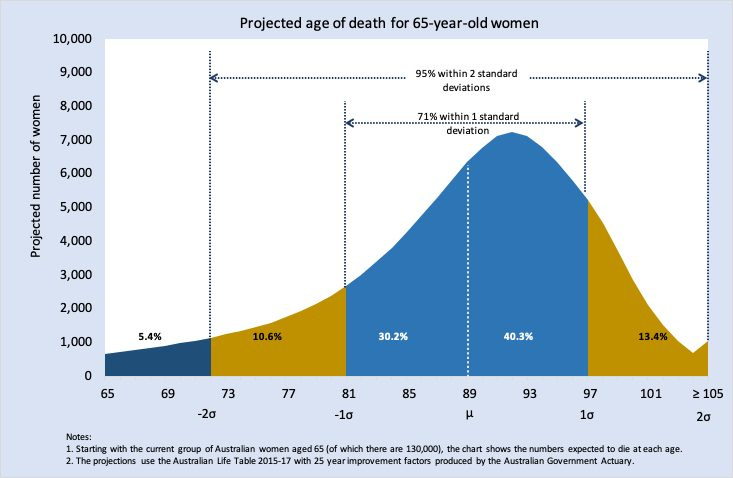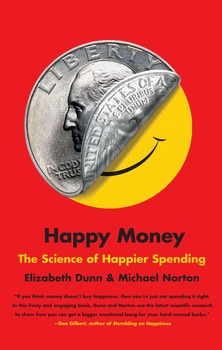Planning In An Uncertain World
Why Do We Even Bother?
The Upfront: Because I am a financial planner, much of this is driven from my experiences as a client planner and advisor. I also run a business, though, and everything discussed here is applicable to business planning and operations. As an ex-technology professional, it applies equally to system test planning, rollouts, and software development and engineering.
My Friends and Clients
A friend died a few weeks ago. He was a client, yes. More importantly, he was also a friend. Age? 48. The cause was glioblastoma. We spent years working with he and his wife, planning for their freedom period of life. About 2 years ago, they became financially free. They continued working, thinking that they would consider, each year, whether it would be the time to start travelling extensively (they’ve always enjoyed travelling) and spending their time on experiences other than work.
We did all the planning, they did the work and the saving, and poof, a different plan is now in order. It wasn’t like we expected him to die so young. Did we run their plan assuming that one of them would die young? Of course, that is prudent financial planning. But I cannot say we really planned for it - we just ran the financial models. To be fair, we did also ensure that they had an appropriate estate plan, and had that modified over the years as their situation changed. We did consider that one of them could die: we just did not expect it.
Like all of you, sometimes I wonder why we focus so much on planning. Anything can happen, to anyone, at any time. Why not have the experiences you want to have now, when you know you can? Spend it all each month. Live your life. Why plan at all?
Uncertainties of Planning
Wait, don’t we plan to try and create certainty? We do, and it does. In a way.
One uncertainty: There is a quite wide range of your and my potential lifespan.
Source: https://www.actuaries.digital/2020/08/12/standard-deviation-around-life-expectancy-is-eight-years-what-this-means-for-retirees/
Another not so little uncertainty is we have no idea how long you may be able to earn an income. What this lovely little table is telling you: If you were born in 1966, there is a 28% chance you will experience a disability prior to normal retirement age (NRA). NRA for someone born in 1966, at least according the the Social Security Administration, is 67. It is also telling you that there is an almost 8% chance of death prior to NRA.
This is not meant to be morbid. What is meant is to convey the physical uncertainties in life. Spending it all now is a fine strategy if you do not have to be concerned with life past your earning years. It is also a wonderful strategy if someone else will pay your bills.
Not in one of those morbidity categories? We still have a problem. Nothing goes as planned. Life just has a strange way of having its own direction. The plan tends to be wrong the day or week or month after we create it. Here are some life changes we have worked on:
“I want to leave my (highly paid) consulting career and be a commercial pilot (technology consultant in their late 40’s). I have always wanted to fly”.
“I used to love my work (political consultant, in their early 40’s). Now I cannot stand it. The clients are not fun, the work seems plastic. I want to spend my time doing charitable work and with my family”.
Several highly compensated people laid off from 15-year +, successful tech careers.
Spouse/spousal equivalent/child/parent dies far too soon.
None of these scenarios were in the client’s mind when we conducted their annual review and plan update. Until one was. Certainly, with some of our clients we have and do discuss, well in advance, various scenarios. For most, however, the unique thing that happens was either not predictable or was a reasonably sudden change in approach. Perhaps it had been in the back of their mind. Maybe they were afraid to discuss with it their spouse. COVID. War in Ukraine and they have employees there. Bank failure, tying up some of their funds. Sometimes, it is what appears to be (and may be) a sudden change in want. The human brain is a funny thing. It wants what it wants, and it is quite good at manufacturing the reasoning to justify itself. Sound crazy? Read 7 1/2 Lessons About the Brain or Your Money and Your Brain.
The reality of all plans, whether it is a plan to develop enterprise software, your annual business plan, or to change careers, is that they nearly always change. One more reason to not plan. Cause celebre? Most definitely.
Why Are We Doing This?
“If you don't know where you are going, you'll end up someplace else.” Allowing the events of the day to create your direction leaves your results in the hands of others. You might like where you end up. You might not. This can happen if you plan. It is almost certain to happen if you do not plan.
Scenarios can help you make decisions in this age of uncertainty. Every day, you are pummeled by information (including this maybe not-so-humble attempt to help), scary things, events that seem unique. When you create plans with multiple scenarios, you can set mileposts whereby, if you see them, you can decide to change direction or at least re-evaluate your plan. Yes, I think you should be conceiving of scenarios, developing contingency plans, scanning the environment, and comparing your actual results to your plan. Then you can make decisions with at least some guiding information, and I refer to your brain’s ability to make stuff up based on what you want to believe. Merely slowing down the decision, by consulting your plan, can change and potentially improve your decision.
The process of planning, and I am a strong proponent of it being a process (rather than having the plan be a product), will cause you to consider alternatives, diminish the tyranny of the day, and force you to compare how you feel to a set of facts and assumptions. We plan to calm the mind, provide space for thinking, divorce ourselves from what is happening at the moment, consider what we really want from our lives, and set a course for what is likely many years to follow. Is it financial? Partly. Being 90, having no more money, and relying on others is neither a pleasant nor desired condition for most. It is also physical (your health), emotional (your mental health), and spiritual.
In the light (or dark, depending on how you feel about life!) of the uncertain, planning is a device to help you cope with the present and at the same time prepare for what is an uncertain future.
Sundry:
Funniest thing I’ve seen this week: I was fortunate enough to have dinner with 10 fascinating and funny people on Sunday night (I was at the SHIFT conference, and highly recommend it if you are a financial advisor or advisor to advisors). One of them reminded me of this scene from Ghostbusters, suggesting that I was one of the characters. You can decide which one (warning, it is NSFW, and you could be offended). Yes, it’s crude, and it also is a wonderful, mocking, misuse of grammar.
Best piece of advice I’ve seen this week: “Invest in others”, from Happy Money.





I recently came across such an article, and your thoughts made me think that I should try and I will succeed https://www.hydra.cloud/en/resources/blog/6-steps-to-successful-project-planning-in-an-uncertain-world Thank you